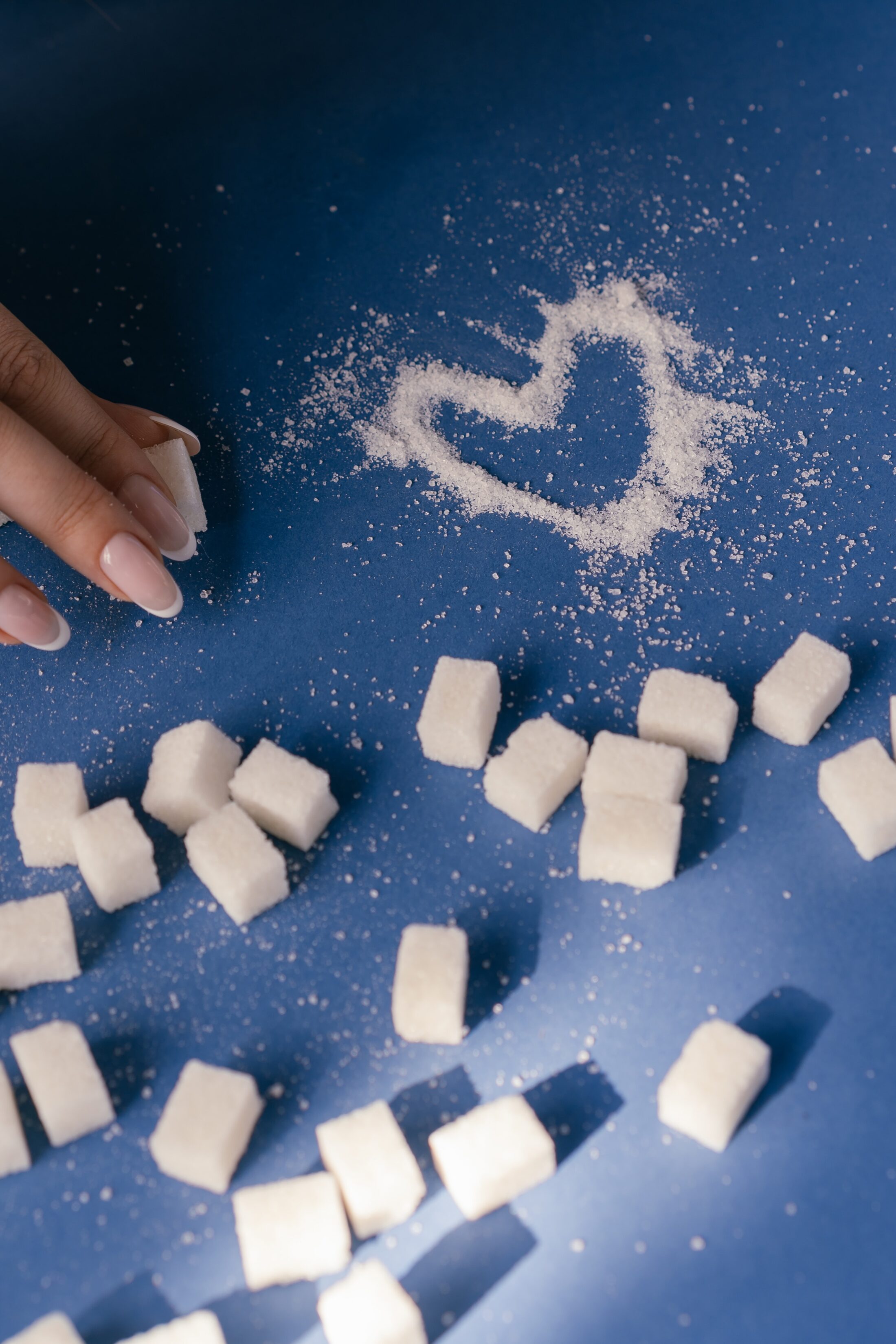

We’ve seen a drastic increase in sugar consumption in the past several years. In the past, we mostly ate sugar that was found naturally in foods.
However, now over one-third of the calories we consume come from either sugar or white flour (which acts like sugar once digested). Our bodies can’t handle such large quantities.
When you consume sugar, you experience a quick high followed by an inevitable crash. As your body starts to crash, it begins to crave more and more sugar, which leads to further consumption.
It’s this endless cycle of highs and lows that takes a toll on your adrenals, leaving you feeling anxious, moody (sugar is known to alter your mood), and exhausted.
Sugar not only negatively impacts your long-term health, but also disruptsshort-term immunity. In fact, research suggests that one of the primary reasons for decreased immunity is because sugar prevents Vitamin C from entering white blood cells. As a result, this hinders your ability to fight off infection and disease.
There are many health risks associated with consuming too much sugar, such as a decreased ability to fight infection and disease. Furthermore, sugars can stimulate insulin production in the pancreas, which then causes the liver to produce more triglycerides.
Triglycerides have been linked to stroke, heart disease, and obesity. We will provide you with all the necessary information on how to reduce your sugar intake.
Like cocaine, alcohol, and nicotine, consuming large amounts of sugar can override self-control and cause addiction. This is because over time, our brains become addicted to the natural opioids that are triggered by sugars.
A study from 2007 found that when rats were given a choice between water sweetened with saccharin or cocaine, 94% of them chose the saccharin. This suggests that sugar is just as addictive as cocaine.
Larger doses of cocaine didn’t tempt the rats away from saccharin or sugar water. In fact, even rats addicted to cocaine chose sweetened water over more drugs when given a choice. To put it another way, extreme sweetness surpassed cocaine as a reward for these rodents’ brain cells.
The three stages of addiction, as defined by the American Psychiatric Association, are bingeing, withdrawal, and craving. In recent experiments done by Princeton University’s Professor Bart Hoebel and his team, it was rats that showed evidence of these final two stages of addiction.
The data collected led the scientists to believe that sugar is a substance that can be highly addictive due to its ability to induce cravings in addition to causing withdrawals and binges.
Over time, we develop a need for sweets to feel content or fulfilled and turn to sugar as adults to help boost our energy or mood.
“Something sweet” is often seen as a symbol of love and care, which is in contrast to the clinical assessment of sugar. For most of us, when we think about sugar, we don’t associate it with being harmful.
However, biochemically speaking, sugar is harmful to our bodies. We become conditioned early in life to need something sweet to feel complete or satisfied. As adults; however, we continue to self-medicate based on this sugary conditioning by using it as a temporary mood or energy booster.
We all know that addiction never ends well, but we continue to chase after the quick fix regardless.
Sugar is as addicting as illegal drugs, and just like those drugs, it takes a toll on your health. Serious health conditions such as heart disease, diabetes, high blood pressure, and premature aging are only some of the dangers of consuming too much sugar. Beating an addiction to sugar requires a strong but methodical plan, similar to overcoming any other drug addiction.
Allow yourself the occasional “treat” by following these guidelines. Be mindful that one small slip is not indicative of complete failure. Instead of being harsh on yourself, learn from your mistake and move forward.
If you have difficulty maintaining control with only a little sugar, it might be best to abstain completely. The key to sustainable success is finding satisfaction in experiences other than food.
Sustainable Shades For many DIY enthusiasts and design aficionados, a fresh coat of paint is…
Cruelty-Free Solutions for a Healthier You Chronic inflammation can be a relentless foe, disrupting our…
Unleashing Your Brain's Potential In today's fast-paced world, maintaining sharp mental focus and cognitive agility…
Exploring DIY Organic Makeup Fixers For the eco-conscious beauty enthusiast, the quest for flawless makeup…
A Sensitive Exploration The clean beauty movement has taken the beauty world by storm. Consumers…
Taming the Mane Frizz – the bane of smooth hair dreams. It can transform a…
This website uses cookies.